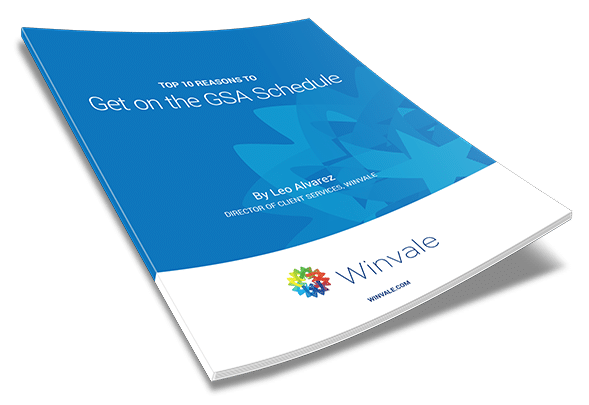Winvale Blog
The latest insights for government contracting success, GSA Schedule assistance, & IT Manufacturer support.

By:
Steve Young
July 7th, 2011
Supporting the world’s desire to create a cleaner environment, President Obama recently ordered agencies to limit their fuel use. He outlined this objective by demanding agencies to buy more alternative-fuel vehicles and in some cases even decrease the size of their fleets. Obama issued the memo recently when GSA announced plans to spend $4.3 million to purchase 116 electric vehicles. GSA will rent the cars —precisely 101 Chevrolet Volts, 10 Nissan Leafs and 5 Think City EVs — to 20 federal agencies in 5 cities across the country. They have even outlined plans to have charging stations for powering those cars in Washington, San Diego, Los Angeles, San Francisco and Detroit—the cities were those 20 federal agencies are located. The only exemption of this rule includes law enforcement vehicles. But to further support the objective, the memo directs GSA to work with agencies to help issue guidance for alternative fuel vehicles for law enforcement. Looking to the future, Obama even ordered all fleet purchases starting in 2015 to be alternative-fuel vehicles.

GSA Schedule | Government | Resources and Insight
By:
Kevin Lancaster
July 4th, 2011
If you’re a government contractor chances are you are fully aware of the myriad registrations and systems you are required to maintain throughout the year. From annual updates to your Central Contractor Registration (CCR) and Online Representations and Certifications Application (ORCA) to periodic subcontractor reporting through the Electronic Subcontracting Reporting System (eSRS) or opportunity searching through Federal Business Opportunities (FBO), contractors must consistently monitor several disparate systems in order to continue to partner with Uncle Sam. In a recent BLOG we profiled the FAPIIS System, which consolidated several long standing databases already in use by the procurement community in making contract award determinations. While, from an ease of use standpoint, this is a step in the right direction for Contracting Officers, little has been done to streamline activities for vendors. Well things are about to change.

Do you know what the real benefits of being on the GSA Schedule are? Learn the top 10 reasons (and advantages) why you should consider it.

GSA Schedule | Resources and Insight
By:
Kevin Lancaster
June 30th, 2011
There’s BIG news for GSA Schedule 84 contractors looking to add new products to their pricelist. GSA recently started requiring additional documentation for modifications to add new products or to increase the price of products already on your awarded pricelist. Contractors are now required to submit a listing of comparable products, either listed on GSA Advantage.gov or elsewhere on the internet. The comparisons can be of exact products or of similar products. This competitive documentation will be used by GSA contracting officers to substantiate the commerciality of your product and determine if the price you offer GSA is fair and reasonable. For some contractors, it may be relatively easy to find products that are comparable to your products. If you are a reseller, there may be other contractors on GSA Advantage that sell the exact same item from the same manufacturer. Or perhaps another company sells the exact same item, but not to GSA. As long as their pricing is listed somewhere on the internet, that should be sufficient for the comparisons.

GSA Schedule | Resources and Insight
By:
Kevin Lancaster
June 27th, 2011
GSA’s Mentor- Protégé Program was introduced in 2009 and is designed to help small businesses get their foot in the door of the federal marketplace. The program encourages large business prime contractors to assist small businesses including disadvantaged, women-owned, historically underutilized business zoned, veteran-owned, and service-disabled veteran-owned small businesses. In so doing, GSA promotes the business development of small businesses and enhances their capability to compete more successfully for federal government contracts and gain access to economic opportunities. The program is intended to foster the establishment of long-term relationships between small businesses and GSA prime contractors and increase the overall number of small businesses that receive GSA prime contract and subcontract awards. How the Mentor-Protégé Program Works

By:
Kevin Lancaster
June 23rd, 2011
The Department of Labor just released its annual memorandum, noting a rate increase for Service Contract Act (SCA) Health and Welfare Fringe Benefits. Effective Friday June 17th, the new H&W is $3.59 per hour. If you have any GSA labor categories that are subject to the Service Contract Act, when was the last time you checked the Wage Determinations and updated your SCA costs? Are you paying employees the current SCA prevailing wages and benefits to be in compliance?

GSA Schedule | Resources and Insight
By:
Kevin Lancaster
April 15th, 2011
The General Services Administration (GSA) has been investing in sustainable, innovative technologies, as a part of America’s economic recovery. For the last year under Martha N. Johnson’s new leadership GSA has supported sustainable industries including green buildings. Federal buildings are being made green by modernizing them both externally and internally and equipping them with the latest sustainable technologies. Some of these cutting edge technologies include green and reflective roofs, solar panels, temperature-adjusting envelopes, high-insulation/performance windows, energy-saving heating and cooling systems and low-flow plumbing. GSA reports that these innovations will immediately improve the performance of federal buildings and save millions of taxpayer dollars in the long term.
Copyright Winvale | All Rights Reserved